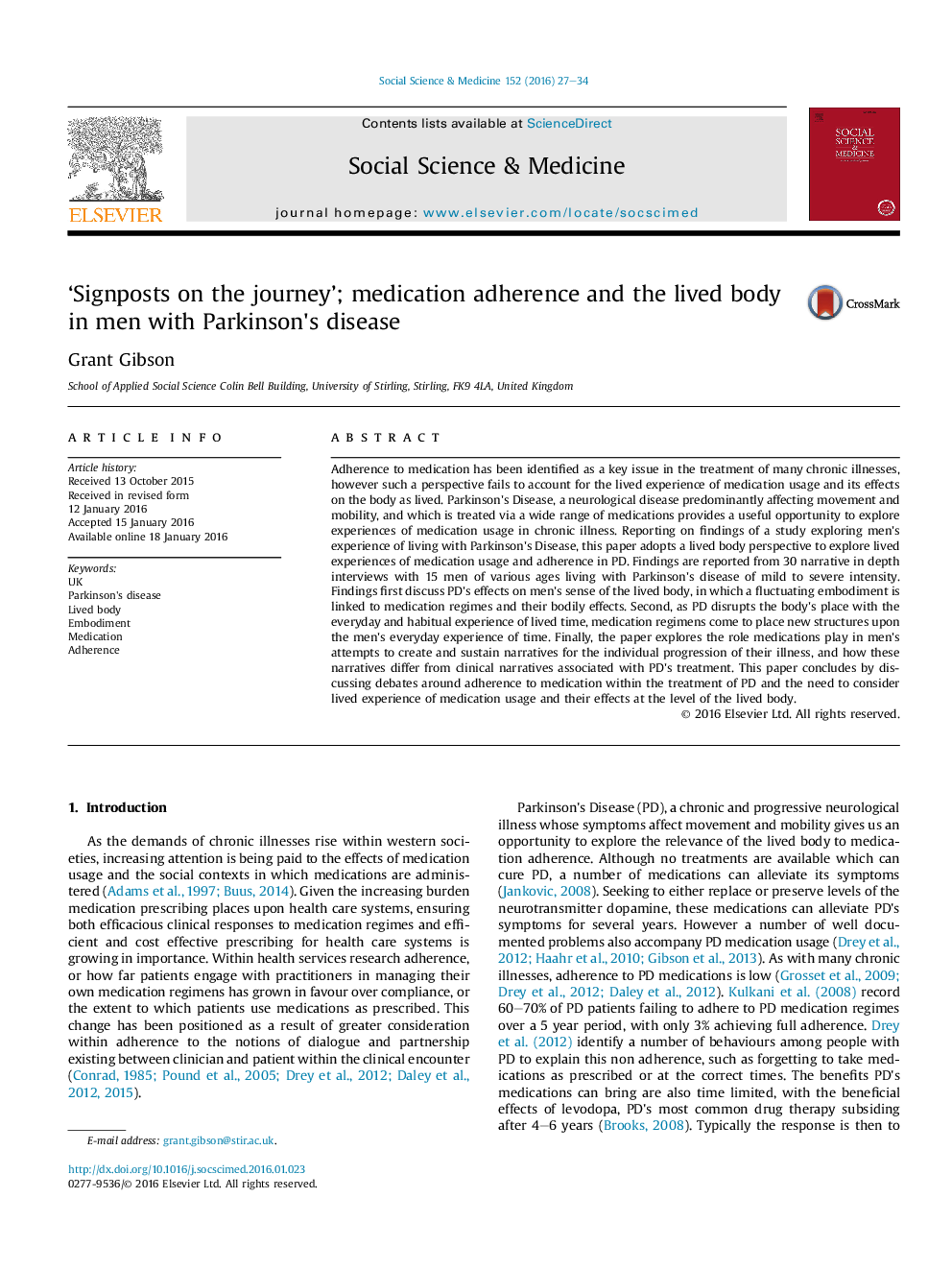| Article ID | Journal | Published Year | Pages | File Type |
|---|---|---|---|---|
| 7330507 | Social Science & Medicine | 2016 | 8 Pages |
Abstract
Adherence to medication has been identified as a key issue in the treatment of many chronic illnesses, however such a perspective fails to account for the lived experience of medication usage and its effects on the body as lived. Parkinson's Disease, a neurological disease predominantly affecting movement and mobility, and which is treated via a wide range of medications provides a useful opportunity to explore experiences of medication usage in chronic illness. Reporting on findings of a study exploring men's experience of living with Parkinson's Disease, this paper adopts a lived body perspective to explore lived experiences of medication usage and adherence in PD. Findings are reported from 30 narrative in depth interviews with 15 men of various ages living with Parkinson's disease of mild to severe intensity. Findings first discuss PD's effects on men's sense of the lived body, in which a fluctuating embodiment is linked to medication regimes and their bodily effects. Second, as PD disrupts the body's place with the everyday and habitual experience of lived time, medication regimens come to place new structures upon the men's everyday experience of time. Finally, the paper explores the role medications play in men's attempts to create and sustain narratives for the individual progression of their illness, and how these narratives differ from clinical narratives associated with PD's treatment. This paper concludes by discussing debates around adherence to medication within the treatment of PD and the need to consider lived experience of medication usage and their effects at the level of the lived body.
Related Topics
Health Sciences
Medicine and Dentistry
Public Health and Health Policy
Authors
Grant Gibson,
